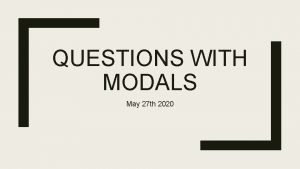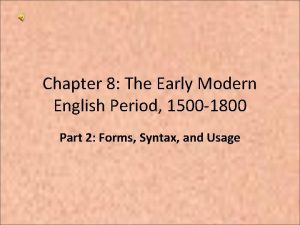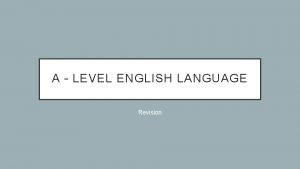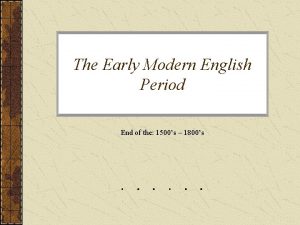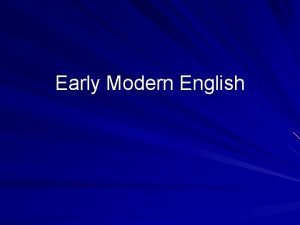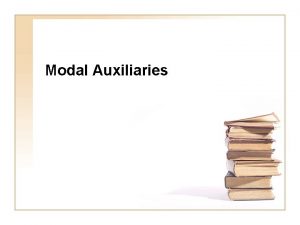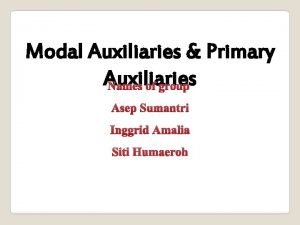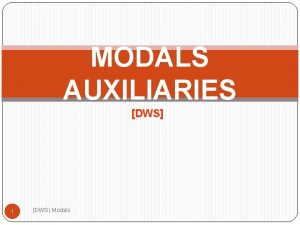The new changes of early modern English Auxiliaries





- Slides: 5


The new changes of early modern English Auxiliaries: Adjective Other parts of speech

Adjectives The adjective in Early New English lost the form of plural and weak forms and acquired its present-day qualities. The degrees of comparison are formed by means of the suffixes -er and -est The forms elder/older, eldest/oldest and further/farther, furthest/farthest are distinguished in use. So elder, eldest are used to denote relations within a family and older mean something magnificent, big and huge and further/furthest are used in relation to time whereas farther/farthest to distance.

Auxiliaries The verb can/could still takes the personal ending of the second person, but no ending is observed in the third person singular. The new way of forming the degrees of comparison that appeared in Middle English - that is, analytically, by placing the adverb more and most before the adjective comes into practice. Shall/should are used as modals; shall also as auxiliaries of the future and future-in-the-past tense. For example: Canst thou remember A time before we came unto this cell?

Other parts of speech: Nouns and prepositions, etc. show no essential difference relative to Pd. E. Some of them, of course, have been lost, as shown by the case of unto, a preposition meaning to (as in verily I say unto you ‘I truly say to you). In middle English the plural is formed by adding -en but in early modern English the plural is formed by adding -s or -es. Some irregular noun plurals have become regularized, e. g. eyen (> eyes), or horse (> horses; this word originally had a suffixless or zero plural, like Pd. E sheep). A systematic difference between EMod. E and Pd. E concerns a matter of spelling. In Pd. E, the Genitive forms of nouns are written with an apostrophe, e. g. stone’s, boys’, etc. In EMod. E, this is not yet observed, so you would have stones, boys.
